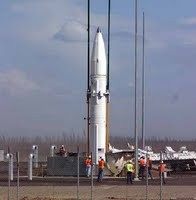The Missile Defense Conference currently taking place in Moscow demonstrates the wide gap that continues to separate Russia and the West on the issue of ballistic missile defense (BMD). Russian Defense Minister Anatoly Serdyukov warned attendees that the two sides “have not been able to find mutually acceptable solutions at this point, and the situation is practically at a dead end.”
The BMD issue has divided Moscow and NATO since the 1980s, and nothing on the horizon seems likely to narrow these differences any time soon. If there is one thing these years of frustrating experience should have taught us, it is that missile defense is precisely the wrong issue to make the centerpiece of the Russia-NATO reset.
Each U.S. and Russian administration for the past 20 years has declared its commitment to collaborate on joint Russian-American BMD projects. Despite varying European enthusiasm for missile-defense spending, NATO has always endorsed cooperating with Moscow on BMD, if for no other reason than to dispel Russian concerns about NATO’s programs. Yet, recurring U.S. and NATO attempts to foster BMD cooperation with Russia have only succeeded in building a foundation of failure and frustration that has reinforced the pervasive mistrust among the parties. Over the years, the two sides have tried different approaches to overcome their differences, but nothing has worked for long.

